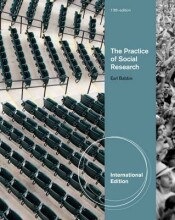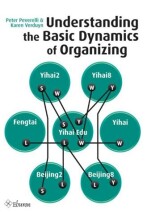Step 4: Make summary with flashcards and/or notes
27 important questions on Step 4: Make summary with flashcards and/or notes
What part of the paragraph usually contains the best information about the topic?
Steps for effective communication
-Active listening
+pay full attention
+acknowledge thoughts, ideas and feelings
+Do not interrupt
~ask relevant questions
~paraphrase
-Be assertive and objective
+Use "I" statements
+ Avoid labels, describe objective behavior
-Dont be defensive. Accept the other person's feedback
The impact of social network and texting in social psychology
-Immediate Response v. Patience
-Social Interactions and Relationships
+you get to think and edit
-Self Esteem
-Personality
+"likes", pictures, "friends", comments, time spent in the social network site
-Obsession/Psychological Addiction
-Privacy/Safety
- Higher grades + faster learning
- Never study anything twice
- 100% sure, 100% understanding
Freud's Personality Theory- Id
-Id (the person is all Id at birth)
+lacks organization
+blind, demanding, insistent, illogical, amoral
+it's ruled by pleasure principle
+driven to satisfy the instinctual needs and unconscious drives
Freud's Personality Theory- Superego
-Superego
+the person's moral code
+serves as a harsh internal judge of our behavior
+evaluates the morality of our behavior as good or bad, right or wrong
+our conscience
+strives for perfection, not pleasure
Freud's Personality Theory- Ego
-Ego
+deals with the demands of reality
+It's ruled by the reality principle
+tries to bring the individual pleasure within the norms of society
+acts as a mediator between the conflicting demands of the id and the superego as well as the real world
+the seat of intelligence and rationality
Intellectualization ('Isolation of affect')
Sense of humor/Sarcasm
Adler's Individual Psychology
Adler's Birth Order Personality Theory
-Positive Outcome: Responsibility
-Negative Outcome: Insecurity
Middle Child
-Positive Outcome: Healthy Ambition
-Negative Outcome: Rebellious Behavior
Youngest Child
-Positive Outcome: Confidence
-Negative Outcome: Spoiled
The Five Factor-Model of Personality (Trait Perspective)
-Each of the five personality factors represents a range between two extremes.
+O-penness
+C-onscientiousness
+E-xtraversion
+A-greeableness
+N-euroticism (emotional instability)
Social Cognitive Perspective
Theoretical Approaches to Psychological Disorders
Psychological Approach
Sociocultural Approach
Biopsychosocial Model
Mental Disorder Diagnosis
-Physical and Neurological Evaluation
+Blood tests
-DSM-Diagnostic and Statistical Manual of Mental Disorders
+The major classification of psychological disorders in the United States
Disorders usually first diagnosed in infancy, childhood or adolescence
-Learning Disorders
-Autism
-Motor Skills Disorders
-Communication Disorders
-Attention-Deficit and Disruptive Behavior Disorders
Generalized Anxiety Disorder
Individual is unable to specify the reasons
Obsessive Compulsive Disorder (OCD) (Anxiety Disorder)
Post Traumatic Stress Disorder (Anxiety Disorder)
+Flashbacks
+Avoidance of emotional experiences
+Excessive arousal/Insomnia
+Difficulties with memory or concentration
+Aggressiveness/Impulsivity
Depressive Disorders (Mood Disorder)
+Major depressive disorder
+Dysthymic Disorder (more chronic)
Schizophrenia (Psychotic Disorders)
Hallucinations
Delusions
Thought disorder
Referential thinking
Disorders of movement
+Catatonia
Flat affect
Antisocial Personality Disorder (Personality Disorders)
-Pervasive pattern of disregard for, and violation of the rights of others.
+Psychopath/Sociopath - Remorseless predators who engage in violence to get what they want.
Borderline Personality Disorder (Personality Disorders)
-frantic efforts to avoid being abandoned
-unstable self image
-extreme emotional responses
-self-harming behaviors such as cutting themselves, drug abuse, unprotected sex, reckless driving, binge eating
-temporary stress related paranoia
Anorexia Nervosa (Eating Disorders)
Bulimia Nervosa (Eating Disorders)
Binge Eating Disorder (Eating Disorders)
Florida Mental Health Act
Integrative Therapy (eclectic)
The question on the page originate from the summary of the following study material:
- A unique study and practice tool
- Never study anything twice again
- Get the grades you hope for
- 100% sure, 100% understanding































